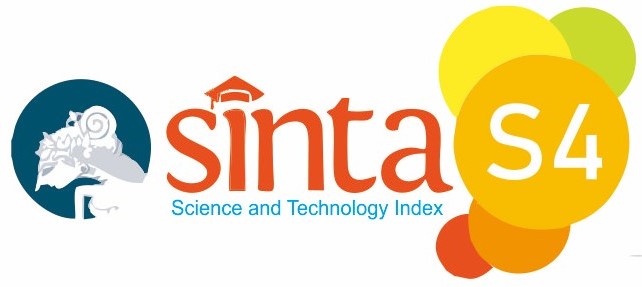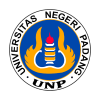The Effectiveness of the Use of Project Based Learning Models on Student Learning Outcomes in Fracturing Engineering Subjects at SMK Negeri 1 Tanjung Raya
Abstract
The low learning results of students when learning the Frais Technique serve as the impetus for this study. It is believed that this is because students are not actively participating in teacher-centered learning models and their learning is not at its best. The purpose of this study is to ascertain how well the Project Based Learning learning paradigm affects the learning outcomes of SMK Negeri 1 Tanjung Raya students studying framing techniques. This study employs quantitative approaches and quasi-experimental research. 40 students made up the study's sample, and they were divided into two categories: the experimental category and the control category. The research period was carried out during the academic year 2024–2025's odd semester. The findings from the analysis of the data in this research suggest that the learning model centered around projects is significantly more influential than the conventional model to improve learning outcomes, the findings of the analysis illustrate that the average post-test results of the experimental class of 75.25 are greater than the control class with an average of 63.75. Based on the results of research and discussion, quasi-experimental research on the XI grade Frais Engineering Subject at SMK Negeri 1 Tanjung Raya can be concluded that there is an effectiveness of using project-based learning models on student learning outcomes where the value of learning outcomes in groups using project-based learning models is higher than conventional models.
References
Aditya yusuf, d. (2016). Pengaruh penerapan metode pembelajaran resitasi terhadap hasil belajar matematika siswa. Jurnal sap, 1(2), 125–134.
Alwifari qari. (2023). Pengaruh model pembelajaran project based learning terhadap hasil belajar siswa pada mata pelajaran produk kreatif kewirausahaan di smk negeri 1 tanjung raya. Universitas negeri padang.
Citra, r. (2017). Komparasi hasil belajar matematika menggunakan contextual teaching and learning (ctl) dengan pembelajaran konvensional siswa kelas vii smp negeri 9 merangin. Jurnal pendidikan matematika mat-edukasia, 2(2), 23–31.
Damayanti, et all. (2023). Strategi pembelajaran project based learning (pjbl). Jurnal pendidikan sosial dan humaniora, 2(2), 706–719. Https://publisherqu.com/index.php/pediaqu
Erlangga, o., k, a., & purwantono. (2020). Studi perbandingan hasil praktikum pembelajaran project based learning dengan pembelajaranlangsung pada siswa kelas x teknikpermesinan di smk negeri 1tanjung raya. Journal of social and economics research, 2(2), 110–123.
Fadjarajani, s., rosali, e. S., & noerdianasari, w. (2020). Pengaruh model pembelajaran picture and picture terhadap hasil belajar geografi. Perspektif ilmu pendidikan, 34(1), 19–28. Https://doi.org/10.21009/pip.341.3
Fanani, m. Z. (2013). Pendekatan dan model pembelajaran kurikulum 2013. Didaktika religia, 2(1). Https://doi.org/10.30762/didaktika.v1i2.122
Harahap, i. F., & manurung, s. L. (2023). Application of project-based learning learning model assisted by geogebra application to improve students’ mathematical reasoning ability at mts nurul islam indonesia medan. Asian journal of applied education (ajae), 2(1), 99–118. Https://doi.org/10.55927/ajae.v2i1.2539
Hidayati, h. (2022). Belajar pembelajaran dalam metode ceramah. Thesis commons, 2–3. Https://files.osf.io
Hikmawati, f. (2017). Metodologi penelitian. Rajagrafindo persada.
Magdalena, i., fauziah, s. N., faziah, s. N., & nupus, f. S. (2021). Kesulitan dan daya beda butir soal ujian akhir semester tema 7 kelas iii sdn karet 1 sepatan. 3, 198–214.
Rachmawati, a. (2023). Efektivitas penggunaan model pembelajaran project based learning terhadap peningkatan hasil belajar siswa kelas viii pada mata pelajaran ips di smpn 13 malang [universitas islam negeri maulana malik ibrahim malang]. Https://www.ncbi.nlm.nih.gov/books/nbk558907/
Rahman, a., munandar, s. A., fitriani, a., karlina, y., & yumriani. (2022). Pengertian pendidikan, ilmu pendidikan dan unsur-unsur pendidikan. Al urwatul wutsqa: kajian pendidikan islam, 2(1), 1–8.
Rais, m., & ardhana, w. (2013). Project-based learning vs pembelajaran dengan metode ekspositori dalam menghasilkan kemampuan belajar teori perancangan mesin. Jurnal pendidikan dan pembelajaran, 20(1), 33–44.
Rikosa, s. A. R., sumiati, r., & yetri, y. (2018). Uji kelayakan mesin frais type schaublin 13 menggunakan metoda pengujian ketelitian geometrik. Jurnal temapela, 1(2), 48–55. Https://doi.org/10.25077/temapela.1.2.48-55.2018
Santoso, s. (2014). Panduan lengkap spss versi 20 edisi revisi. Jakarta, elex media komputindo.
Somayana, w. (2020). Peningkatan hasil belajar siswa melalui metode pakem. Jurnal pendidikan indonesia, 1(3), 350–361. Https://doi.org/10.36418/japendi.v1i3.33
Sugiyono. (2014a). Metode penelitian pendidikan pendekatan kuantitatif, kualitatif dan r&d (p. 72). Alfabeta.
- (2014b). Metode penenlitian kuantitatif, kualitatif dan kombinasi (mixed methods). Alfabeta.
- (2018). Metode penelitian kuantitatif. Alfabeta.
Widiyanto, j. (2012). Spss for windows. Surakarta, badan penerbit-fkip universitas muhammadiyah surakarta.
Submitted
Copyright (c) 2025 Jurnal Vokasi Mekanika

This work is licensed under a Creative Commons Attribution 4.0 International License.








.svg_.png)


